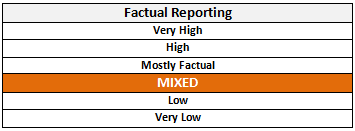Last year, the Supreme Court ruled in favor of American Indians in a lawsuit claiming that an 1800s Treaty agreement with the US government was being violated in Oklahoma (OK). That sort of thing had been common since the 1800s. US Treaties with Indian tribes, supposedly the law, were being ignored by the US government, including federal courts.
In his dissent in the 2020 McGirt v. Oklahoma case, Chief Justice John Roberts warned that chaos would be the result of the decision. The reason was that many crimes prosecuted by the state of OK would be invalid because they were improperly tried by OK, not the Indian tribes or the federal government.
Indian territory in Oklahoma
Kyle Willis hadn’t seen Kimberly Graham in years, since the day she was sentenced to 107 years in prison after she drunkenly plowed her truck into a group of motorcyclists in Tulsa, killing five people, including his mother and stepfather.
So it was a shock when he saw her at a court hearing last month — tanned, dressed in a frilly purple top and jeans and laughing — a free woman. Graham, who is Native American, was let out of prison in April after a Supreme Court decision last year that found that a large part of eastern Oklahoma is still Indian country. Despite a century of state and local prosecutions, the court ruled that crimes there were the province of federal and tribal courts.
“She’s enjoying life as if nothing ever happened,” said Willis, 34, of Broken Arrow, Okla., who said the sight of Graham left him numb. “It’s bizarre. It’s crazy.”
The Supreme Court’s landmark
decision in
McGirt v. Oklahoma said prosecution of Native Americans for crimes in the expanded Indian country must be carried out in federal and tribal courts, rather than by state or local officials. It was celebrated across the country by Native Americans last July, who saw it as a historic affirmation of treaties signed with the U.S. government in the 1800s.
But in the year since, the ruling has upended Oklahoma’s criminal justice system, imperiled convictions in thousands of cases, sowed confusion for police and emergency responders and led to the direct release of more than 50 criminals convicted on charges including second-degree murder and child abuse, state records show.
A local power plant is
challenging an increase in its property taxes. The state is fending off a move by the federal government
to strip its ability to regulate mines on Indian land. The state has also raised concerns about a
potential loss of tax revenue.
The fallout has exacerbated long-standing tensions between Oklahoma’s Republican governor, Kevin Stitt, who is a citizen of the Cherokee Nation, and the leaders of five tribes involved. Stitt held a community forum on the issue this month that
degenerated into raucous shouting, with attendees booing and chanting, “Treaties are the law of the land!”
“We are living a nightmare out here,” said Ryan Leonard, the Oklahoma governor’s special counsel for Native American affairs. “It’s complete, dysfunctional chaos in the state of Oklahoma.”
The WaPo article goes on to note that OK estimates that up to 79,000 criminal have to be released. About one-fourth of those will probably be re-prosecuted. Since the state has to step back, Indian tribes in OK expanded their legal operations by adding prosecutors, marshals and victims services personnel. So far, the Cherokee Nation recently added six prosecutors, two district court judges and 13 marshals and filed about 1,300 cases this year.
Not surprisingly, OK sees this as a mess and Indian tribes see it as a great opportunity to assert their long-denied rights. Justice Gorsuch who wrote the 5-4 decision commented: “On the far end of the Trail of Tears was a promise. Forced to leave their ancestral lands in Georgia and Alabama, the Creek Nation received assurances that their new lands in the West would be secure forever. Because Congress has not said otherwise, we hold the government to its word. Dire warnings are just that, and not a license for us to disregard the law.”
At least some of Robert's warnings are coming true.
Questions: What is more important, continuing to violate Indian treaties and the rule of law in the name of avoiding legal chaos, or to try to live up to Indian Treaty legal requirements even if it means some chaos and bad outcomes with bad people being let off the hook and out of jail?
Are the people who allowed Treaty violations to exist in the first place responsible for the chaos now, or are they well-meaning people (or not well-meaning bigots) who committed forgivable mistakes, assuming (i) any of them are still alive, and (ii) there is at least some legal means to hold them accountable?
Should the Supreme Court take this case up again and rule against the Indian Tribes for convenience or based on new arguments, e.g., the Treaties don't mean what they say, or for some other reason?[1]
Footnote:
1. The current Christian nationalist Supreme Court would probably overturn McGirt and go back to the good 'ole days of blowing off Indian Treaties in OK. Jimcy McGirt was convicted in state court and jailed as a child molester. McGirt, argued that the state did not have jurisdiction to prosecute him because he was a Native American on tribal land. There is one (assuming Kennedy was a radical Christian nationalist) or two more radical Christian nationalist judges now on the Supreme Court than there were when McGirt was originally decided.






